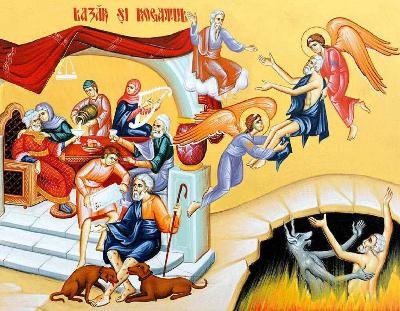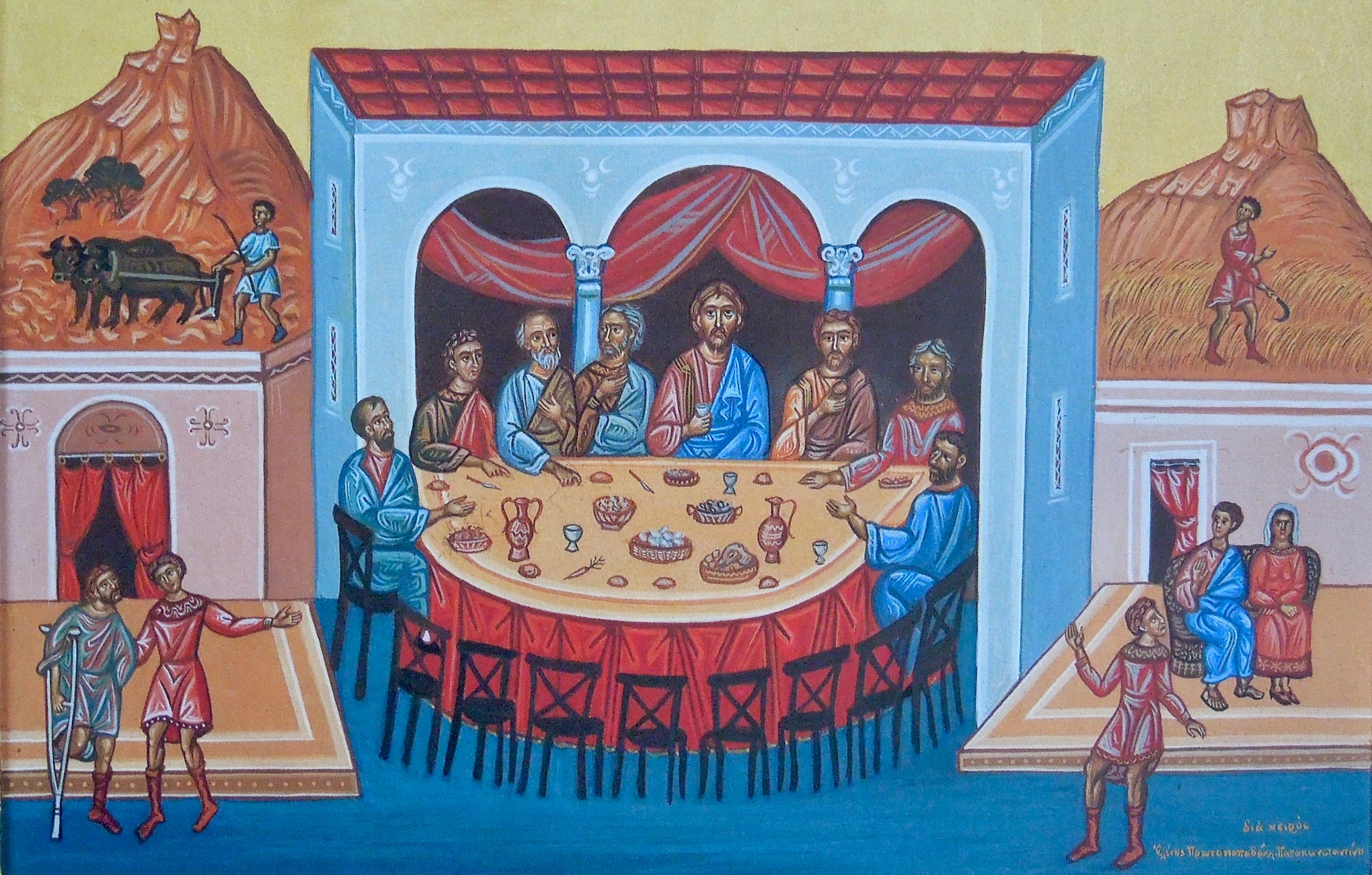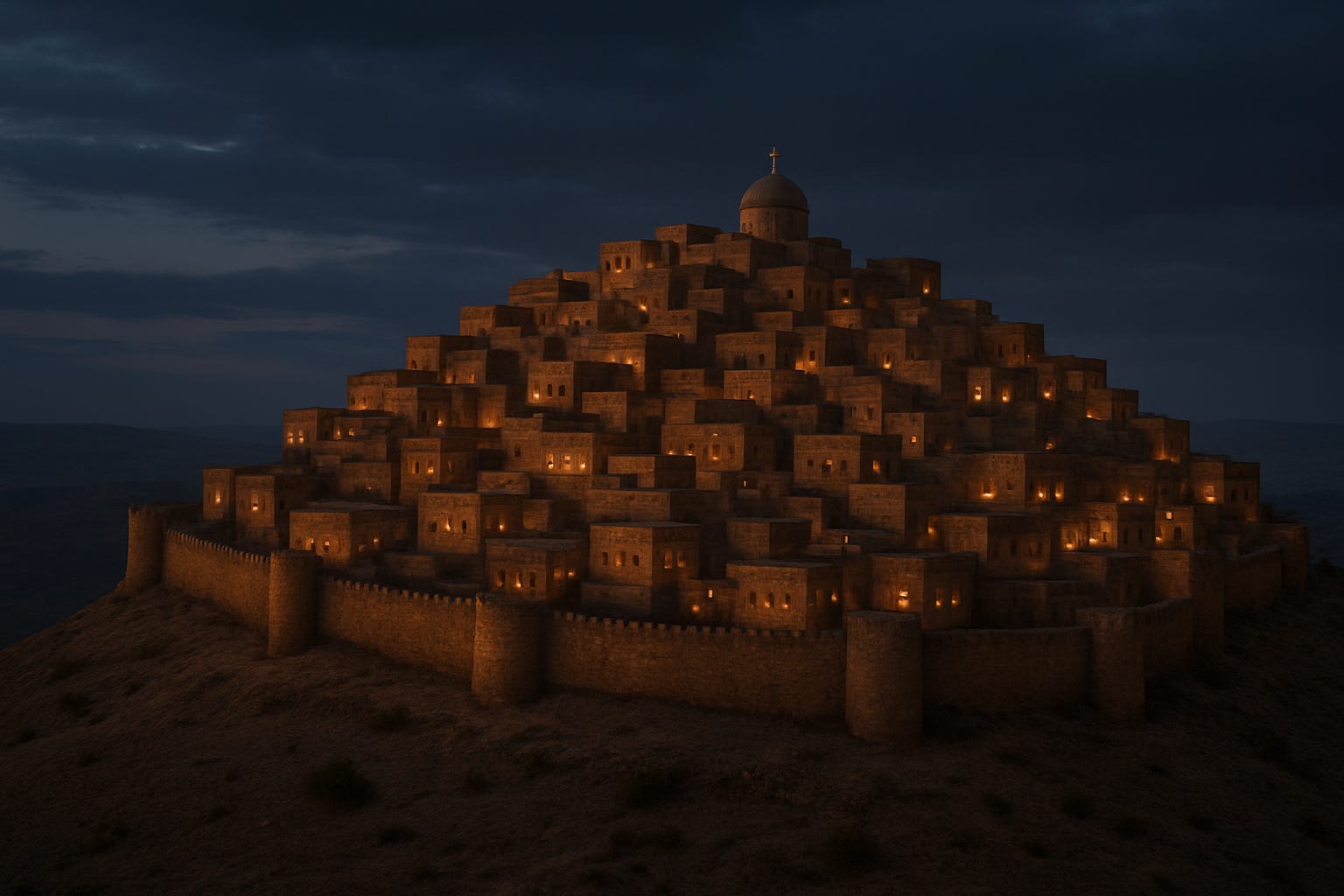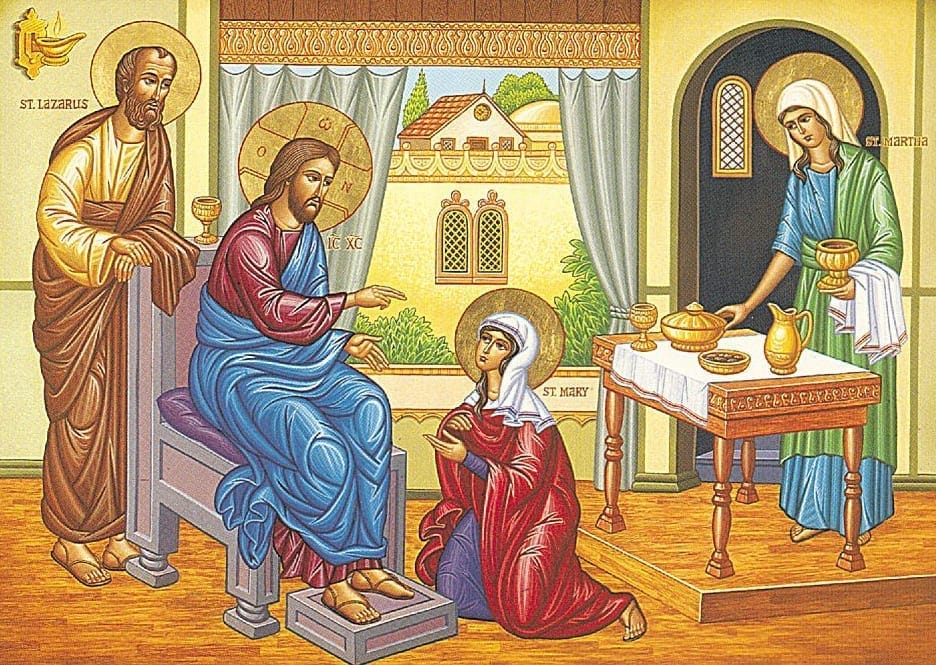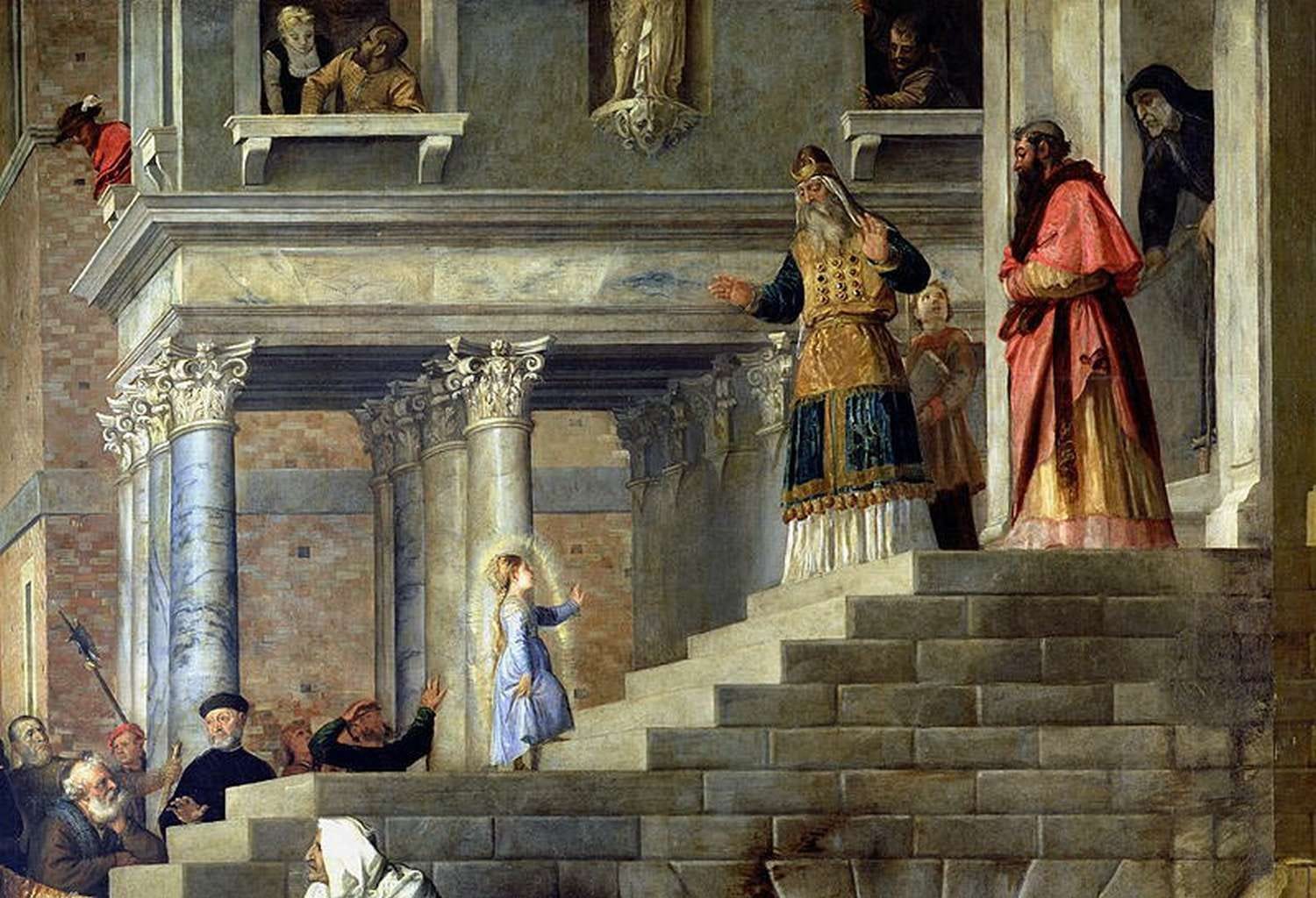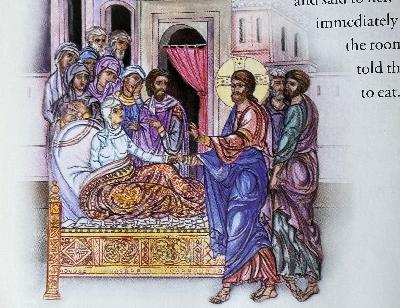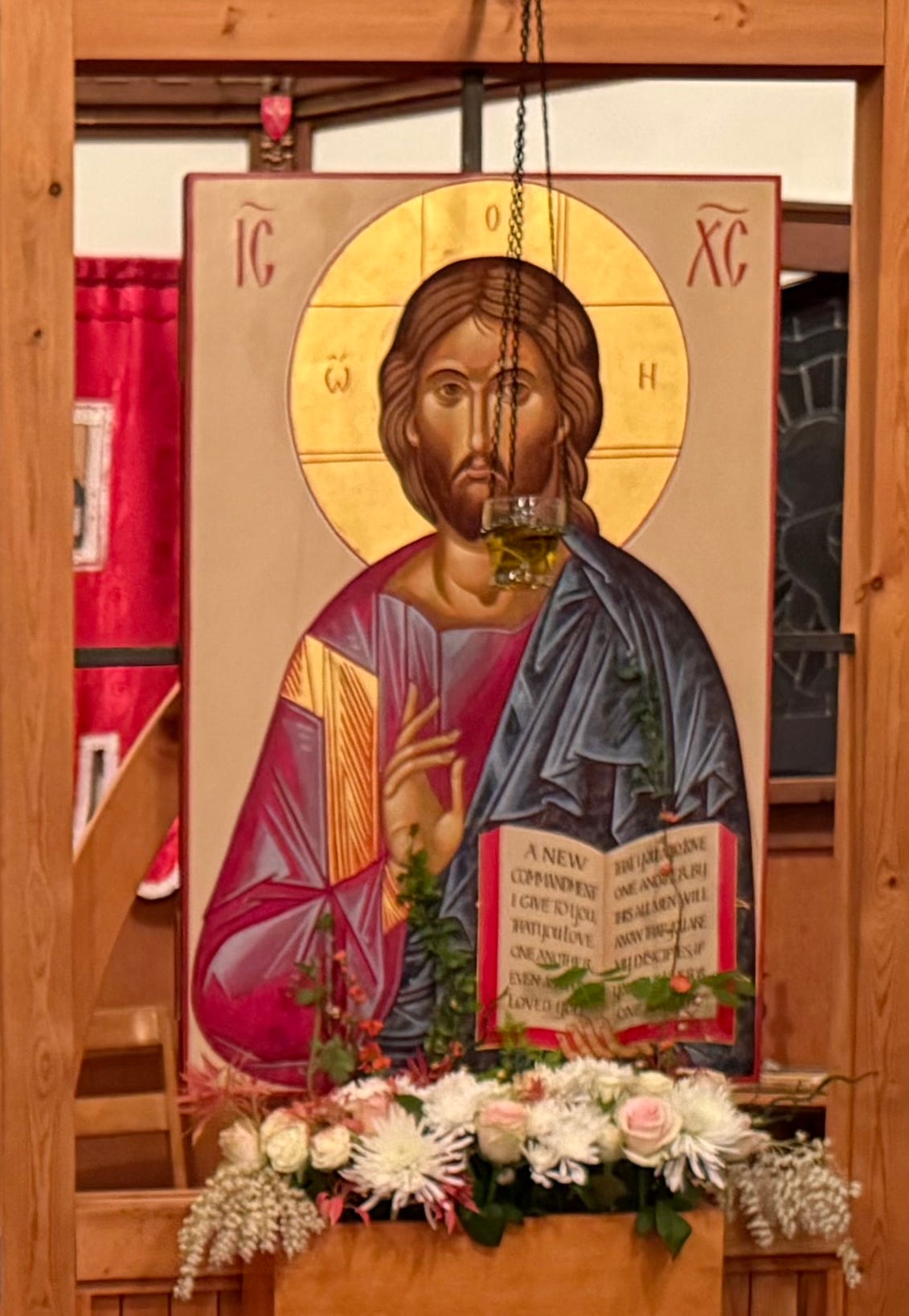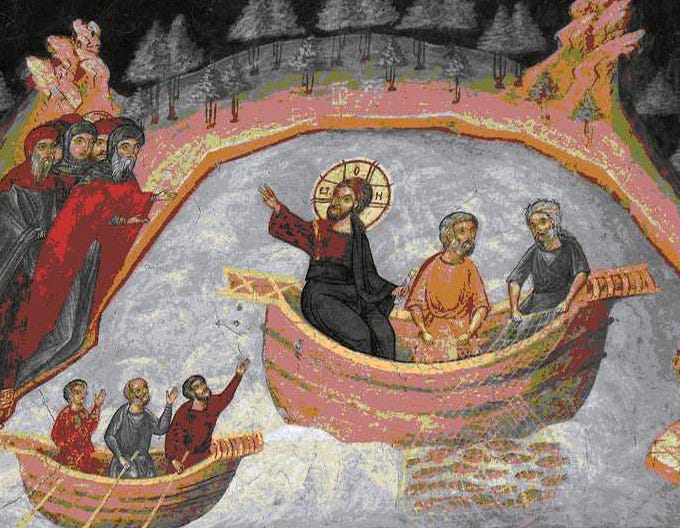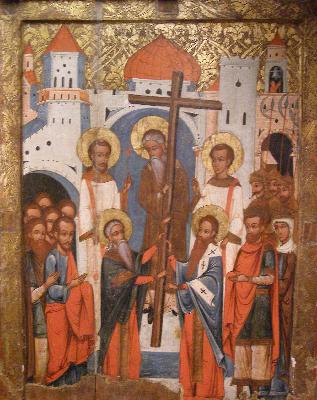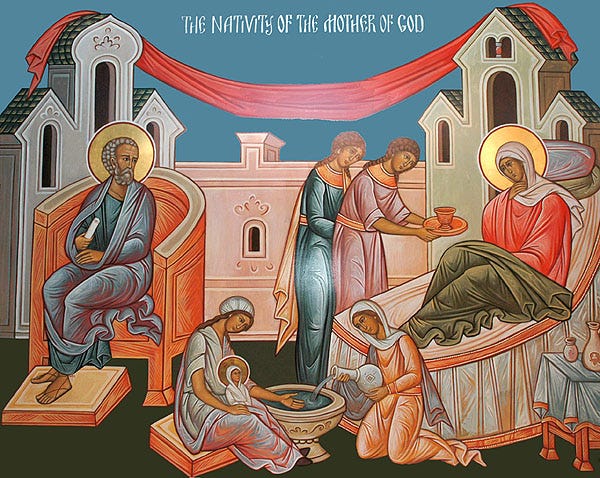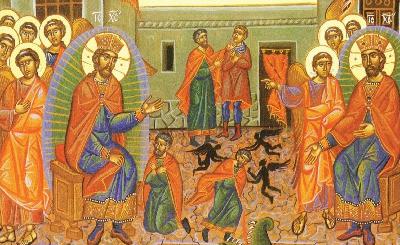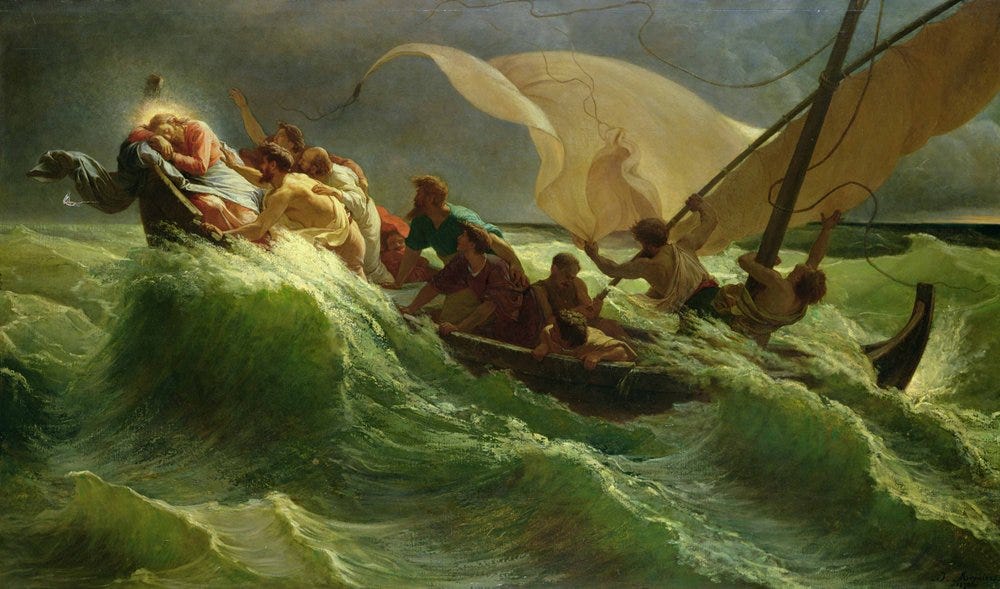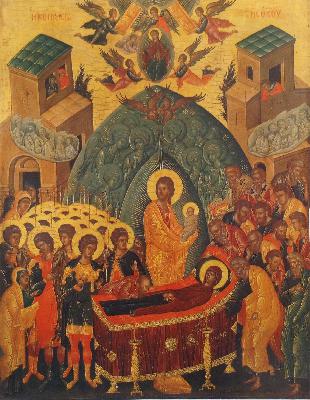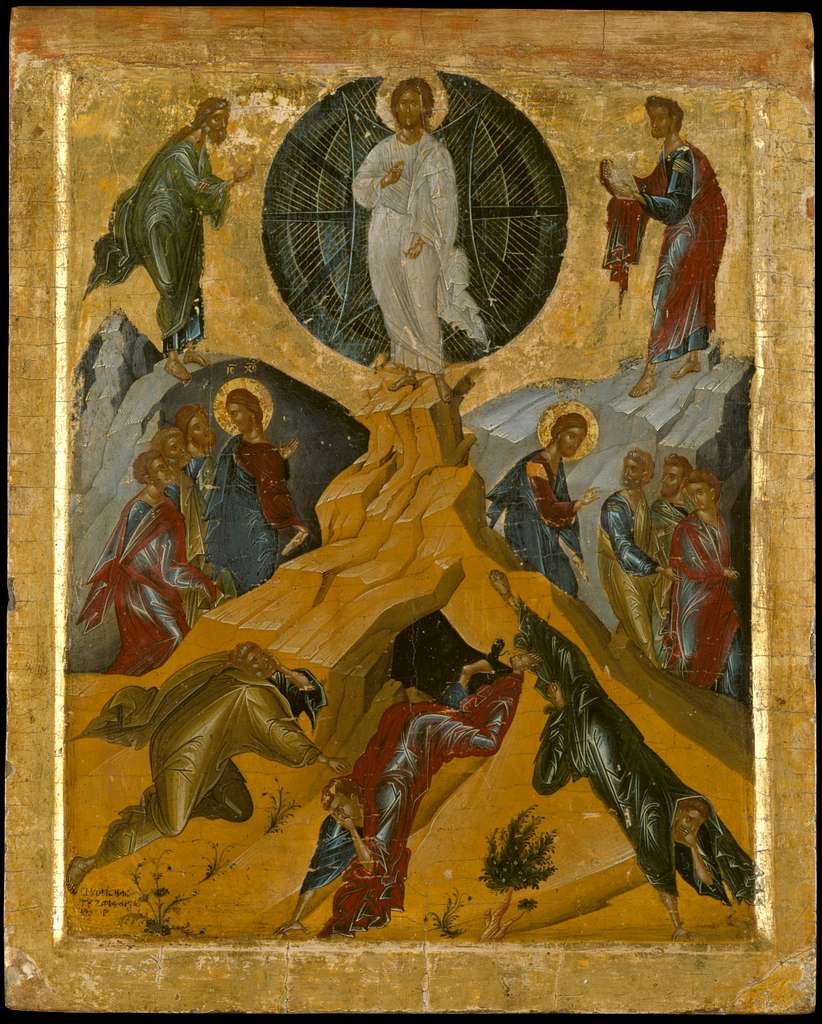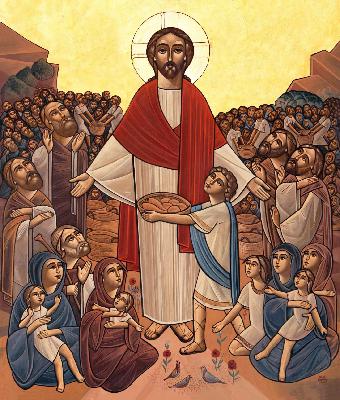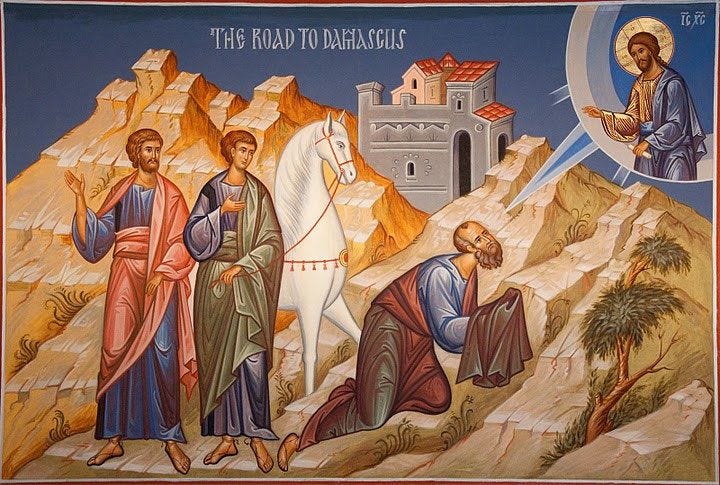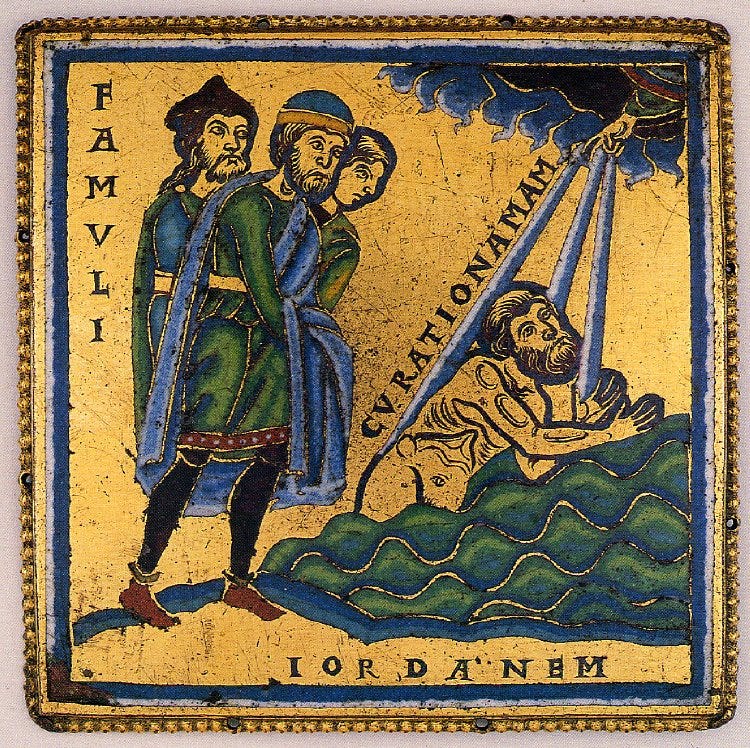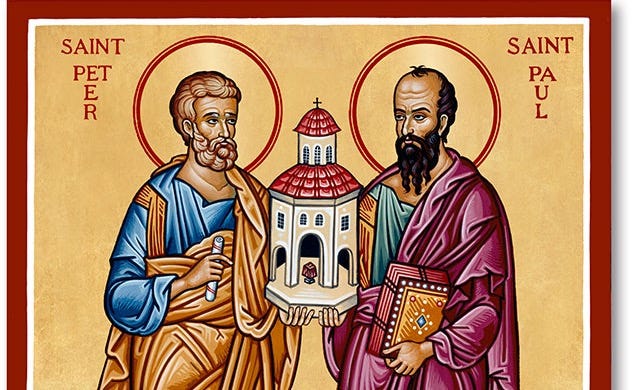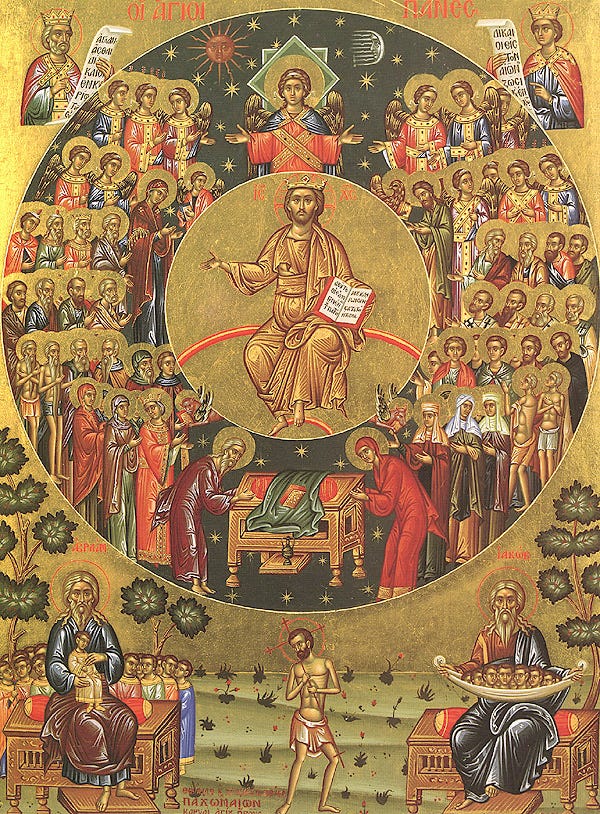Hellfire, Brimstone, and Sodom
Description
So we come again to the story of the rich man and Lazarus, and, since I don’t really want to talk about this story, I feel like that probably means that I should talk about this story. One of the reasons I am reluctant to talk about this story is probably my upbringing. I grew up in a very conservative evangelical Christian community with lots of really nice people there. They loved Jesus.
But I do remember there was a certain trend in the sermons where you had to have—and even some people, some of the very nicest people in the parish—they didn’t feel like it had really been a Gospel message unless they were kind of scared. It’s a tradition that goes a long ways back in Protestantism. You have this famous sermon by Jonathan Edwards, “Sinners in the Hands of an Angry God”. One of the central ideas or images in this sermon is that God has you in his hand, and he’s dangling you over the fires of the abyss. And you just better hold on and make sure he doesn’t let go. He actually read this in a very dry tone, apparently, but he had people clinging to the pillars; they were shaking in their boots. So there is this tradition, particularly in the post-Protestant Christian West, of a good hellfire and brimstone sermon. That’s not what you’re going to get today.
However, the subject of hell has been raised. It’s there in the Gospel, so we need to address it. We need to think about it and talk about it. And one of the things I think we probably need to think about is, why don’t we want to hear it? Why is it, in fact, why is it even a stumbling block for some people who might want to come to the faith?
A big part of it is what I just described. It was kind of overused. Admittedly, the Bible does talk about God being angry. He’s angry at sin. He’s angry at what turning away from him, the source of life, does to us who are dependent upon him, the source of life. He’s angry at sin because it’s like any father who loves their children, looking at what sin does to them, all their desires that pull them away from what they should be doing and what is good for them, and seeing the destructive power of that. Of course, you’ve got to warn somebody about that. Of course, you don’t want your children to go there or do that. Don’t play in the traffic. You might get hit by a car, right?
But I think another part of it is, this kind of philosophical approach that we have to Christianity. And, you know, again, that’s not something bad. We want to understand who God is. If God is the source of all goodness and you want to understand what goodness is, then of course you want to understand who God is, how he is good, what his goodness means. And then you have this. And we’ve even had Orthodox philosophers write books against this, against the idea of there being hell.
And I think this is problematic. Pause for a second and think about this—think about what we’re doing when we’re criticizing God for having this hell thing. And think about it in particular in the context of this story. You have a rich man and you have a beggar. The rich man is clothed in purple and fine linen and lives sumptuously. In that day, they didn’t have nice gaming computers or anything like that, so this is the pinnacle of life. So he’s enjoying all there is to enjoy in the world in which he is. And as he’s faring sumptuously every day, there is at his gate a beggar named Lazarus, who’s sick. And he’s covered in sores. And the only people who seem to minister to him at all are the dogs, which in Jewish tradition are unclean animals, who come and lick his sores. And then they both die.
This is not an unusual story in the history of the human race. This is not something exceptional. There are people out there whose lives are miserable, brutish, and short. They didn’t all live in the Middle Ages, but that is the reality that we do encounter at times. And then there are those who have an abundance, an overabundance, more than they know what to do with. They’ve got to build like lots of yachts and stuff to use up all this disposable income that they have. And, you know, then go sailing on the yachts, which I guess is the clothes of purple and fine linen of our day. This is the reality that we have as human beings that we encounter. It is not right. It is wrong. It is evil. It is unjust. And we should be calling it out as such. St. John Chrysostom did. He said, that extra cloak that you have in your closet that you don’t wear, you stole it from the poor.
In fact, this particular parable or story—some of the fathers say that it’s not a parable, it’s actually a story, because it’s the only one in which Jesus actually uses the name of a person. All these other parables, it’s like a certain…, but here it’s like a certain beggar named Lazarus. Be that as it may, he tells this story in the context of the Pharisees’ response to him.
He’s actually just told the story of the corrupt steward (one of my favorites), where the steward is like, “Hey, my master has found out that I’m embezzling and he’s going to fire me. So what am I going to do? I’m like, I’m too old to dig and stuff like that. So I know.” And he calls his master’s various debtors in to him because he’s the steward. He takes care of his master’s debts. And he’s like, “How much do you owe my master?” And the guy says, “Well, like, 40 bushels of wheat.” “Okay, take your bill and write down 20.” I’m getting the numbers wrong, but essentially that’s it. So he’s cheating his master, and then his master actually ends up commending him. He’s like, “Oh, that’s actually pretty smart, because now he’ll have friends.” And he’s using money, as Jesus says, wisely. This is how we should be using our money. And he points out that you cannot serve two masters. No man can serve both God and the love of money. And the Pharisees laugh at him. “Well, yeah, of course, you’re poor. Of course you’d be valorizing the poor.” And it’s in this context, then, that Jesus tells this parable. This context both of extreme riches and extreme poverty. This context when money and the value of money, the danger of money, is being misunderstood.
And again, I want us to think for a second about— I don’t know, let’s play God for a minute. (God forgive us.) And say, “Okay, well, you know, you kind of got it wrong, Lord. It would be better if they both went to heaven.” Okay, well, let’s think about that for a moment. Maybe on some level it would be, but in terms of justice, you’ve just destroyed the whole point of the story. Where is the justice? Here’s the rich man. He gets to enjoy all of life’s bounties and blessings, and here’s poor Lazarus. And there’s no consequence for the rich man not sharing his abundance with Lazarus. And Lazarus has not... well, I guess he’s in heaven, so that’s nice. But then what’s the meaning of that life that he just lived, which is just full of misery and suffering? It deprives it of meaning.
Or, okay, let’s try another one with, you know, we’re scientific materialists here. So we’ll just, like, say, “Okay, well, it’s the end.” Great. That’s it. Okay, well, now you’ve really messed up the story. Now everything’s kind of just completely meaningless. The rich man gets to enjoy all this, and then he dies. And the Lazarus gets to suffer, and then he dies. And that’s it. That’s the end of the story. Wait. It’s like, maybe we’re not as good at being God as we think we are.
There’s another way to approach this. And here I want to take us back, all the way back, to the father of the faith, Abraham. He has this encounter with God, you’ll remember. The three visitors at the Oak of Mamre come and he entertains them and realizes this isn’t just any three visitors, this is God himself. And God, in fact, as two of the visitors make their way down to Sodom, where Abraham’s nephew Lot is living, God says to Abraham, “Shall I conceal from Abraham what I am about to do? The wickedness of Sodom has reached my ears. I need to judge them.” And Abraham, thinking of Lot, no doubt, says, “Shall not the judge of all the earth do right?”
I want to pause there for a second in this story. That’s a hugely important statement. A hugely important question. Because it’s a rhetorical question. “Shall not the judge of all the earth do right?” Abraham’s assumption, the father of our faith’s assumption is, well, of course he will. Of course he’s going to do what’s right. He’s God. He’s the source of goodness. How could there be anything more good than God? And so the question is purely rhetorical, although admittedly, then Abraham then proceeds to engage in a Middle Eastern bargaining session with God, and he manages to get God down from 50… “What if there were 50 righteous souls in Sodom? You wouldn’t destroy the whole city and all those 50 souls, would you?” And “Well, okay, for the sake of 50 souls, if I find 50 righteous souls in Sodom, I won’t.” And it’s like, “Okay, well, wait, what if there’s not 50?” Abraham’s thinking. “Okay, well, but maybe there’s, you know, only 40. I mean, for the lack of 10 people, you wouldn’t destroy the whole city and all those 40 righteous people with it, would you?” He goes, “No, okay, if there’s 40, I won’t.” He gets God all the way down to 10. And, of course, there aren’t even 10 righteous people in Sodom.
The two men come to Sodom, and they’re going to just like camp out in the marketplace, and Lot, who is like the only righteous guy, really, in Sodom, says, “No, no, don’t do that. Come, come out, you know, I’ll put you up for the night.” And he gives them hospitality in his home. And then the men of Sodom come and are pounding on Lot’s door, telling him to send out these two men so that they can do whatever they want with them. (Read between the lines. Pretty horrible stuff.) You can see the corruption of Sodom and the effect of the corruption of Sodom on Lot, as Lot says, “No, no, don’t do this. I’ll send my daughters out to you.” Fo

